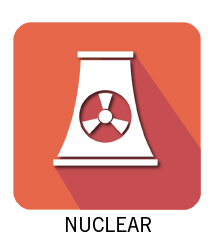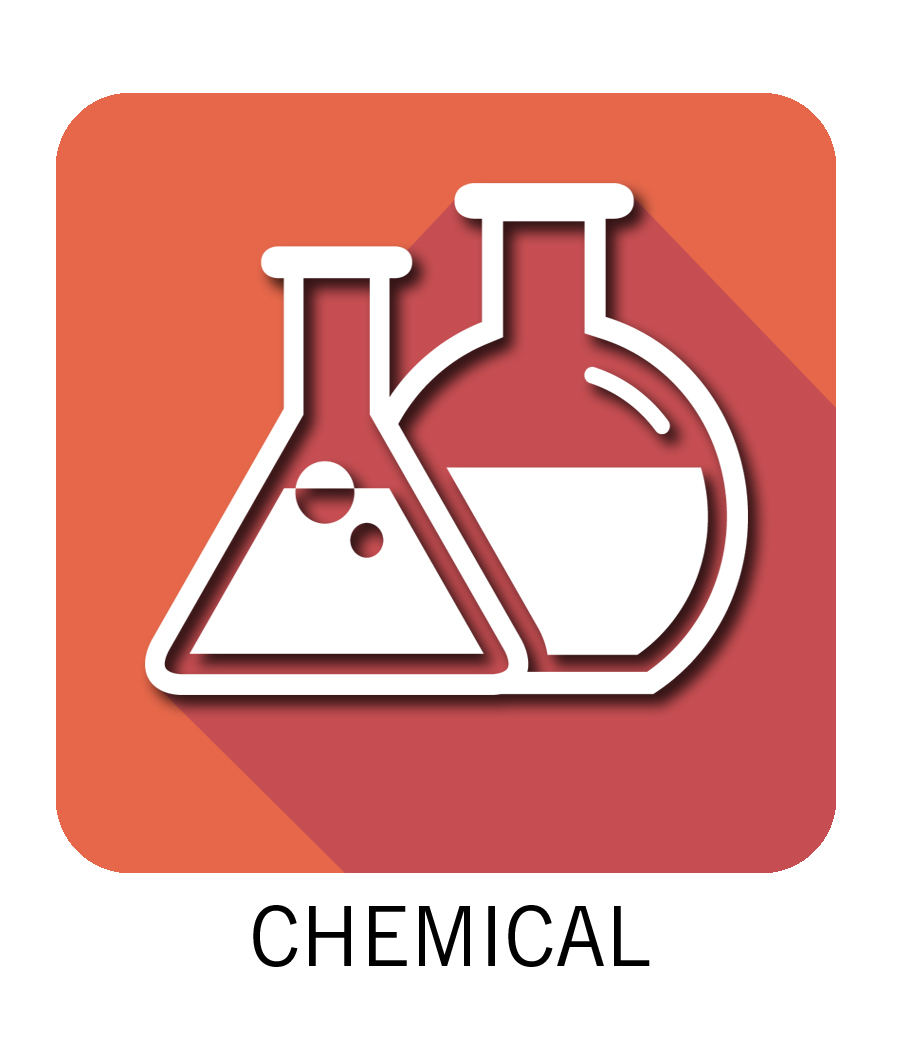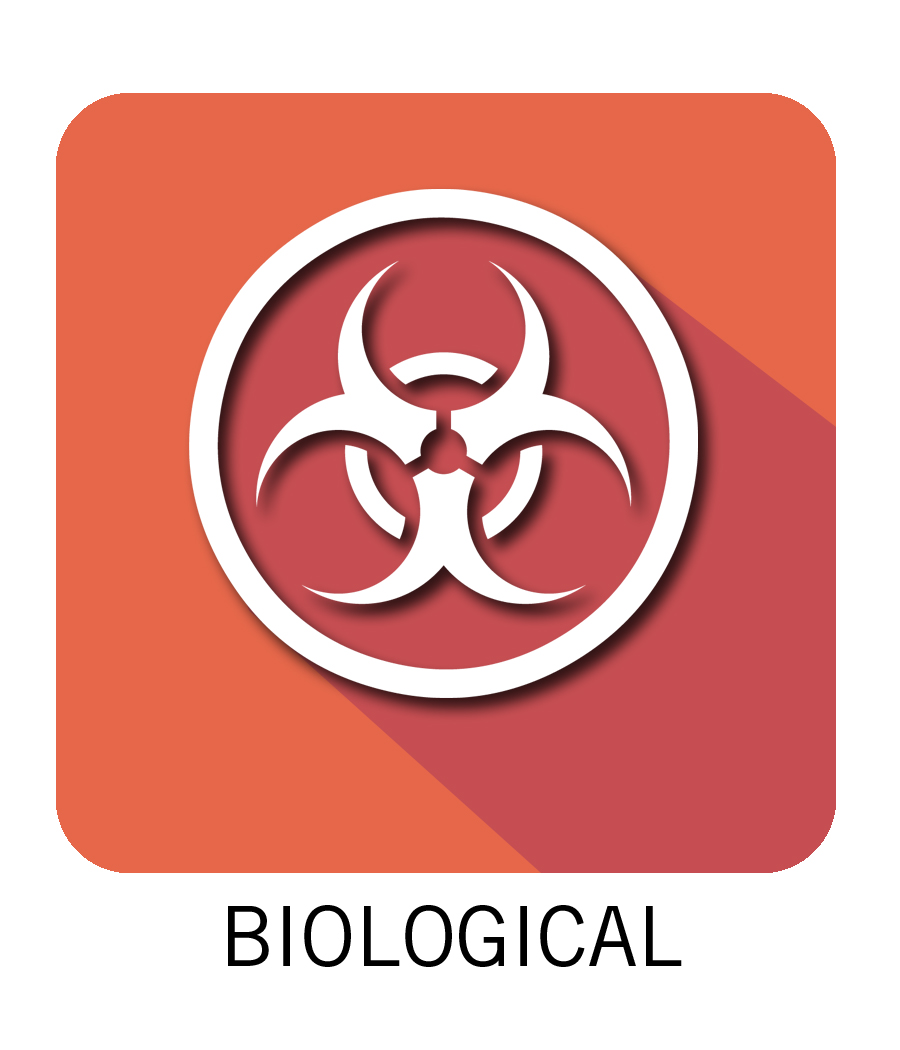
Chemical
Chemical agents are poisonous vapors, aerosols, liquids, and solids that have toxic effects on people, animals or plants. They can be released by bombs or sprayed from aircraft, boats, and vehicles. Some chemicals may be odorless and colorless. They can have an immediate effect (a few seconds) or a delayed effect (2 to 48 hours). While potentially lethal, chemical agents are difficult to produce.
Pre-Attack
- Stockpile 3 days of non-perishable food.
- Stockpile 3 days of water (3 gallons for each person).
- Develop a family contact plan (how to get in touch via phone, internet, or another method).
- Plastic for doors and windows, duct tape.
- Choose an internal room for shelter, preferably one without windows and on the highest level.
- Stockpiling a gas mask is NOT recommended.
Suspected Attack
- Close doors and windows; turn off all ventilation, including furnaces, air conditioners, vents, and fans.
- Seek shelter in an internal room and take your disaster supplies.
- Seal the room with duct tape and plastic sheeting.
- Listen to the authorities for instructions.
Post-Attack
- IMMEDIATELY leave the chemical attack area.
- IMMEDIATELY remove contaminated clothing and shower or flush with water if you are exposed.
- Wash face and hair gently with soap and water and rinse thoroughly with cold water.
- Avoid puddles of liquid.
- Chemical clouds blow away quickly.
- Do NOT immediately rush to the emergency room unless you have breathed in chemical fumes or have contamination on your skin.
FAQs
Q: Should I purchase a gas mask as protection?
A: No. A mask would only protect you if you were wearing it when a chemical or biological attack occurs. A chemical (or biological) agent release is most likely to be done without anyone knowing it, so you would not know ahead of time to put on your mask. Masks that are not correctly set up will NOT give you adequate protection.
Q: Should I keep a stockpile of water?
A: You can live only a few days without water, so it is very important that you create an emergency supply of safe water. One gallon of safe water per person per day is the bare minimum for survival. Most surplus stores can sell you inexpensive 50-gallon plastic drums. Properly chlorinated tap water can be safely stored for up to six months. Water purification tablets are also readily available from many surplus and camping supply stores.
Q: What are the signs of a chemical attack?
A: Many chemical agents cannot be seen or smelled. Observe the following rule of thumb: If a single person is on the ground, choking or seizing, this individual is probably having a heart attack or some type of seizure. However, if several people are down, coughing, vomiting, or seizing, they could be reacting to the presence of a toxic substance. Leave the area immediately, call 911, and tell the dispatcher a hazardous gas may be present.
Q: What should I do during a chemical attack?
A: If the attack occurs indoors:
Exit the building immediately. Avoid puddles of liquid. Once outside, if you were directly exposed to a toxic substance, discarding your modesty and shedding your clothes could save your life. Taking off your outer clothing can remove 80 percent of the contamination hazard. Look for a nearby fountain, pool, or other sources of water to quickly and thoroughly rinse any skin that may have been exposed. Water alone is an effective decontaminant. Try to remain calm. Rescuers will give medical attention to the most seriously injured individuals first.
A: If the attack occurs outdoors:
Birds and other small animals would very quickly be overcome by poison gas, so if birds and insects are dropping from the sky, this is an indication of a possible chemical attack. The most important thing to do is to get a physical barrier between you and the toxic cloud. Get indoors quickly – into a building or a car. Shut all windows and doors and turn off the air conditioner or heater. Plug any air drafts (e.g., under doors). Call 911 and notify the authorities that a hazardous gas may be present. The wind will carry the toxic hazard away within a relatively short period of time. Stay indoors and turn on the television or radio for news. Authorities will notify you when it is safe to go outside. If you are at home, put your clothes in a plastic bag and take a shower to remove any contamination to which you may have been exposed.



